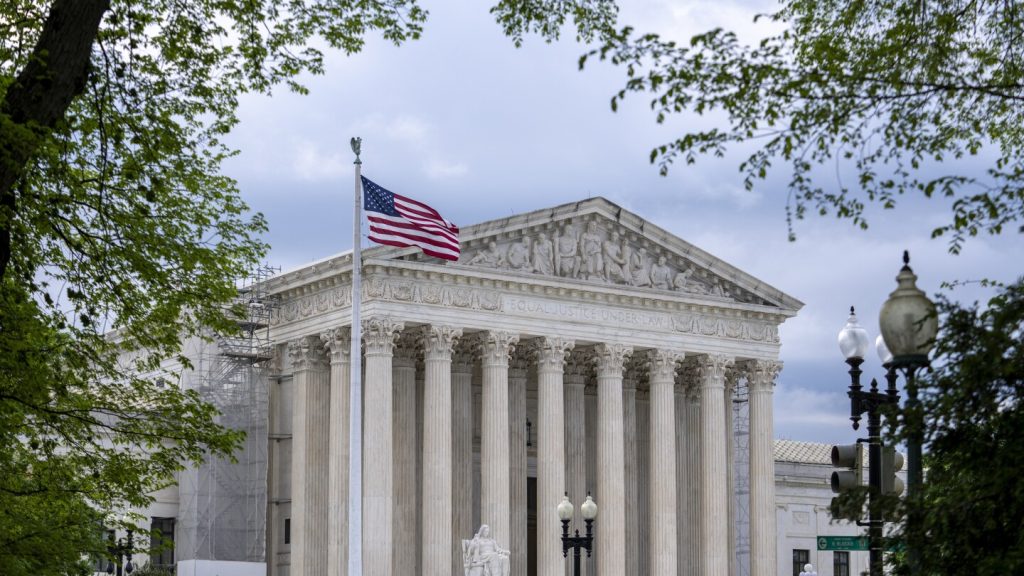The Supreme Court has ordered Louisiana to hold congressional elections in 2024 using a House map with a second mostly Black district. This decision comes despite a lower-court ruling that called the map an illegal racial gerrymander. The use of a map with majority Black populations in two of the state’s six congressional districts could potentially boost Democrats’ chances of gaining control of the House of Representatives in the 2024 elections. The justices’ order prevents the drawing of a new map for this year’s elections, but the court could decide at a later date to hear arguments over the decision striking down the Louisiana map.
The Supreme Court’s order was met with dissent from the three liberal justices, with Justice Ketanji Brown Jackson expressing concern that the judges who struck down the latest map should have been given the chance to produce a new map before the high court intervened. However, conservative justices have previously argued that decisions near elections should be put on hold to avoid confusion for voters and ensure orderly balloting. Louisiana Attorney General Liz Murrill and a lawyer for Black voters have expressed relief at the court’s decision to maintain the current map, with Murrill emphasizing the need for stability in the upcoming election season.
Louisiana has faced legal challenges to its congressional maps in recent years, with federal courts blocking previous maps for being discriminatory against Black voters. The state’s Republican-dominated legislature drew a new map in 2022 that maintained five Republican-leaning majority white districts and one Democratic-leaning majority Black district. Civil rights advocates challenged the map, resulting in a ruling that the districts likely discriminated against Black voters. The Supreme Court’s decision to allow the use of the current map for the 2024 elections indicates the potential for a new map to be in place by then.
The 5th U.S. Circuit Court of Appeals had given lawmakers in Louisiana a deadline to draw a new map by early 2024 or face the possibility of a court-imposed map. New Gov. Jeff Landry, a Republican, had initially defended Louisiana’s congressional map but later urged lawmakers to pass a new map with another majority Black district. A different set of plaintiffs claimed that the new map was also illegal due to being driven too much by race. The dispute over the map has led to a debate over whether it was influenced by political considerations or race, with some arguing that the creation of a new mostly Black district would give Democrats the chance to gain another House seat from Louisiana.
The legal battle over Louisiana’s congressional map reflects broader tensions over redistricting and racial representation in the United States. The Supreme Court’s involvement in this case highlights the complexities of balancing political and racial considerations in the drawing of electoral districts. The outcome of this dispute could have significant implications for the distribution of political power in Louisiana and potentially impact the composition of the House of Representatives in future elections. As the legal proceedings continue, stakeholders on all sides will closely monitor the developments leading up to the 2024 elections.


